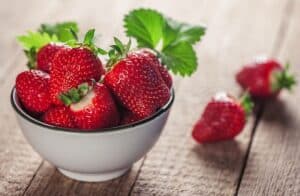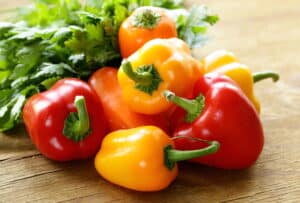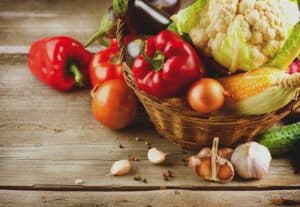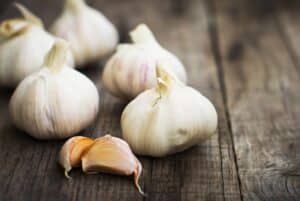Organic Food is produced by an ecological system of agricultural management that produces nutritionally superior plants, resistant to pests & disease. Organic farming builds & maintains healthy soil through traditional methods of crop rotation, planting cover crops, releasing beneficial insects, and composting.
Organic doesn't just mean a return to traditional farming. Biology has contributed precise methods of non-toxic pest & disease control. Farm machinery allows organic farming on a large scale to meet the growing demand for organic food.
Organic Food is the fastest growing segment of the American agricultural economy. People who care about their health & the environment are worried about pesticide & antibiotic drug residues in their food. They're concerned about food poisoning from filthy slaughterhouses, contaminated feed, and diseased animals - all common in industrial agriculture. They're alarmed by the wide-spread practice of food irradiation and the use of toxic sewage sludge as fertilizer. They're just plain terrified by genetically engineered food. They see the environment & water supply threatened by the industrialization of agriculture, and wonder what kind of future their children will have.
Anti-organic Publicity: Recently, studies have been produced showing little or no nutritional difference between organic and non-organically grown produce. This is highly misleading. Soils all over the N. American continent have been severely depleted through more than a century of unsound methods of cultivation.
Soil Quality Declines: Through wind and water erosion, most of the original topsoil has been lost. Over grazing, mono-cropping, the use of chemical fertilizers and insecticides have seriously depleted the nutrients in what s left. It will take hundreds of years to restore even a small part of what's been lost.
A Meaningful Study: However, other studies have shown more key nutrients in organic produce, on the whole. I'd like to see soil quality studies comparing soil samples from twenty year organic farms, with those from non-organic farms in the same geographic area. That kind of study would be much more meaningful than those comparing apples to apples.
Organic Food is Healthier: Chances are very good that organic food, on the whole, is more nutritious than chemically grown food. It's certainly not true that adding chemical fertilizer to soil produces a product equal to organically grown, any more than it s true that living on vitamin pills makes you healthier than someone who doesn't take them. Whether or not your organic apple has more potassium than it's non-organic brother, it doesn't have the same load of poisons.
Our Firm Opinion: It's best to eat organically grown food, whether or not you're a vegetarian, and it's worth going to some trouble to get it. Organic food tastes better, is generally more nutritious, & protects the environment.
Realistically: It is sometimes difficult to obtain organic food, and a well-balanced non-organic vegetarian diet is certainly better than the typical North American diet. But why should we settle for half measures? The more people who loudly demand organic, the more plentiful and affordable it will become.
Contributed by Judy Kingsbury, reprinted from The Savvy Vegetarian.
- Explore VegKitchen’s other Green Kitchen articles, as well as the wealth of kitchen tips in the entire Healthy Vegan Kitchen area.






Patricia says
Organic foods are great in so many levels. No matter how others make some bad impression about organic foods, for as long as they are clean before consumption, they are safe and healthy, even the healthiest choice you can have. I was trained to pick healthy foods and they have good impacts in my health and my well-being. Great post indeed!
Kantine says
There is also a bigger focus on organic food in Denmark today. Many canteen arrangements in schools and companies are often using mostly organic ingredients, which is good.
James Bergman says
I, like you, would love to see a study of the soil in organic vs non-organic farming. I have heard a lot about the benefits of eating organic food, mostly that you are missing out if you don't use organic ingredients. However, it is probably more important to find out the benefits organic farming has on the land. The better we take care of our soil the longer we will be able to use it.
sanamamit says
Organic food is very healthy for us. Many companies provide an organic food for their employees.
geet says
Organic food is indeed a wonderful thing. It gives you so much health benefits and blesses you with long life.
Thank you so much for sharing this awesome post. cheers!